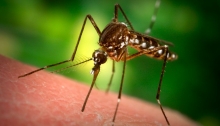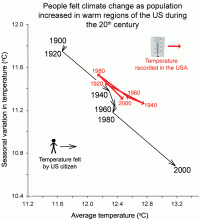The year was 1982. "Food for Thought", a new and innovative course conceived by Drs. David Harpp, Joe Schwarcz & Ariel Fenster. Designed to provoke some thought, separate fact from fiction and of course, digest everything there is to know about food. And now, 17,000 students later, you too can take this course. FOR FREE. That's right. McGill presents its very-first MOOC (massive open online course), & the McGill Office for Science and Society (OSS) is up at bat. Are you ready for some Food for Thought?

Information is the key to life. We want to know what to eat, how to protect our environment, what risks to avoid and what to do if illness strikes. But when it comes to acquiring information, it is the best of times and the worst of times. It is the age of wisdom, it is the age of foolishness. Newspapers, television, radio and of course the Internet bombard us with information at an unprecedented rate, but when it comes to scientific issues the quality of the information is variable.

Almost 40,000 people in the United States developed West Nile virus last year and 1,549 died because of it. Compare that to 1999, the first year the disease was seen in North America, when only 62 people were reported infected.

Selected lectures from Mini-Science 2013: Science, Sex, and Gender are now available as webcasts and podcasts. Listen or watch, when you want, where you want, at no charge!

We’re not used to thinking of ourselves as animals. But as Jason Samson sees it, climate is as important in shaping the distribution and movement of humans as it is in other animals. The McGill-trained ecologist and fellow researchers have been using modeling techniques similar to those used to define the ecological niche for plant and animal species to explore the correlation between climate patterns and population growth in the contiguous United States between 1900-2000. And what they discovered was a pronounced population shift away from areas within the U.S. with cool and seasonal climates, towards those areas that are warmer and drier year-round, and they found that this was the case even when it meant moving further away from agricultural lands.



